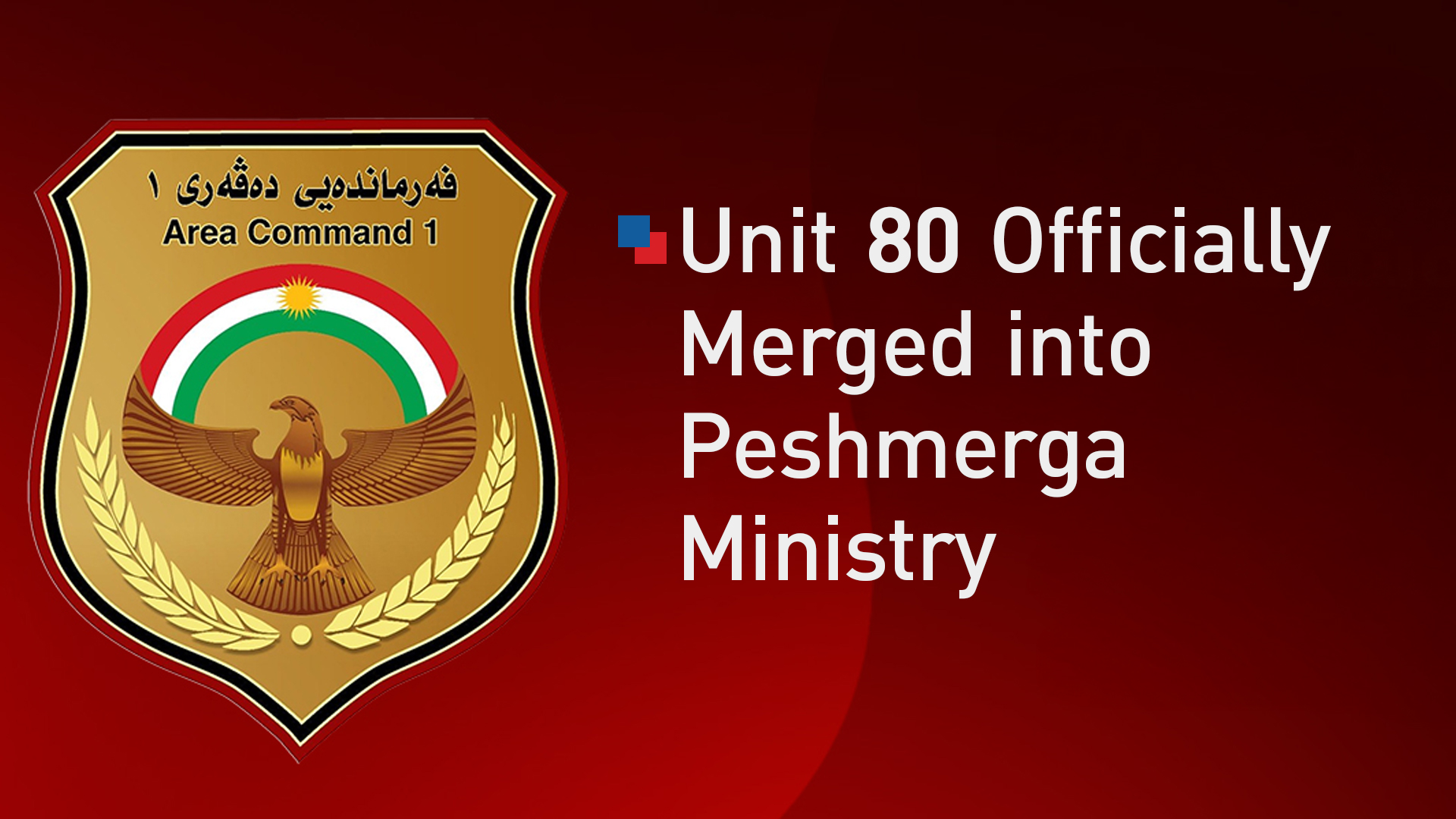In Key Reform Step, Kurdistan Region Merges Unit 80 into Peshmerga Ministry
Kurdistan Region reactivates Unit 80 as the “Area Command 1” under the Ministry of Peshmerga, advancing force unification. A U.S. military delegation meets Tuesday for coordination, though Unit 70 has yet to move toward integration.

Erbil (Kurdistan24) – The Kurdistan Region has officially reactivated Unit 80 under a new structure titled the “Area Command 1,” bringing the force under the formal authority of the Ministry of Peshmerga as part of the ninth cabinet’s comprehensive reform and unification plan.
A senior source within the Ministry of Peshmerga told Kurdistan24 on Monday, that the Kurdistan Region Presidency has issued the decree to return Unit 80 and place it directly under the ministry. The source, who requested anonymity, said the command would consist of six unified Peshmerga divisions, with implementation scheduled to begin in the coming days.
The source added that a high-level coordination meeting will be held on Tuesday, with a U.S. military delegation “to discuss logistical support and synchronization mechanisms for the Peshmerga forces” within the framework of ongoing reforms.
The reactivation of Unit 80 marks a significant milestone in the Kurdistan Regional Government’s (KRG) efforts to reorganize the Peshmerga and bring all military units under a single institutional command.
The step comes as part of the wider reform initiative led by Prime Minister Masrour Barzani, which aims to standardize the force, unify command structures, and end decades of administrative separation between different units.
Since 2023, the unification process has undergone a major restructuring, consolidating multiple brigades into fully organized divisions to enhance command, control, and operational efficiency.
Maj. Gen. Osman Mohammed, Director of Media and National Awareness, previously told Kurdistan24 that each completed division will be paired with a specialized advisory team and will receive advanced training in leadership, intelligence systems, and organizational procedures.
He emphasized that the 70th and 80th units have been “pivotal” in enabling the transfer, consolidation, and reorganization efforts, calling the reform “essential for the success of the force.”
Military expert Wafa Mohammed described the reform as a strategic national step, affirming that professionalizing the Peshmerga will strengthen the Kurdistan Region’s stability and defense posture.
Earlier this month, Ministry spokesperson Osman Risha confirmed to Kurdistan24 that the entire process is aligned with an agreement between the Ministry and the U.S. Pentagon that sets 2026 as the final deadline for the full integration of all forces.
Risha also highlighted the continued military and financial support of the United States and the Global Coalition, as well as Prime Minister Barzani’s central role in driving reforms forward.
While Unit 80 is now being reintegrated under the Ministry of Peshmerga, sources confirm that there has been no corresponding movement from Unit 70 within the unification framework.
Historically aligned with the Patriotic Union of Kurdistan (PUK), Unit 70 remains outside the formal integration sequence, even as Unit 80 — traditionally associated with the Kurdistan Democratic Party (KDP) — begins the final stage of transition.
The Peshmerga reform plan seeks to bring both units 70 and 80 under the full authority of the Ministry of Peshmerga to create a unified, depoliticized national force supported by the Global Coalition against ISIS.
The reactivation of Unit 80 as the “Area Command 1” marks one of the most significant steps yet in the ninth cabinet’s reform roadmap, accelerating the institutional unification of the Peshmerga.
With U.S. coordination meetings scheduled and the 2026 unification deadline approaching, officials say the integration process is entering its decisive phase — though the absence of progress from Unit 70 underscores the complexity of achieving full structural unity.